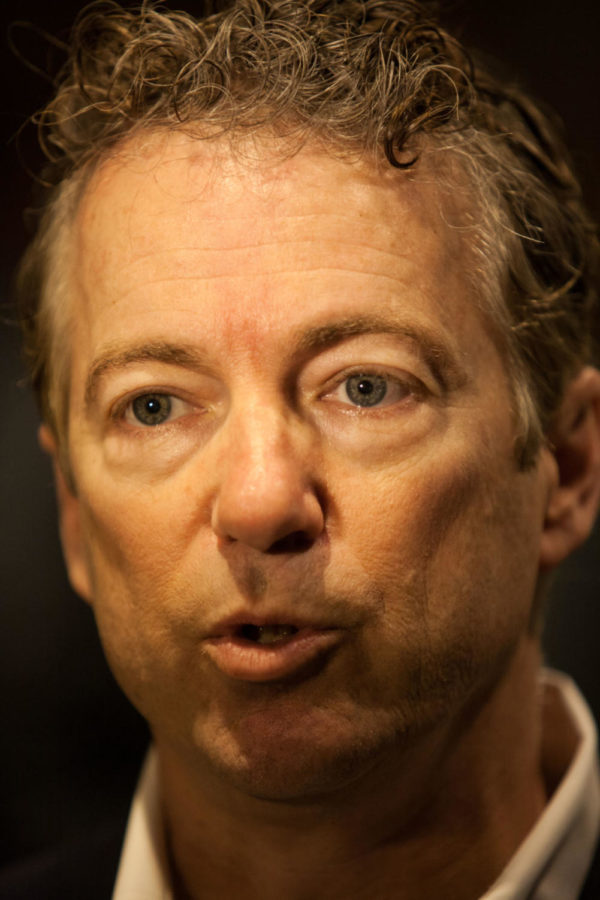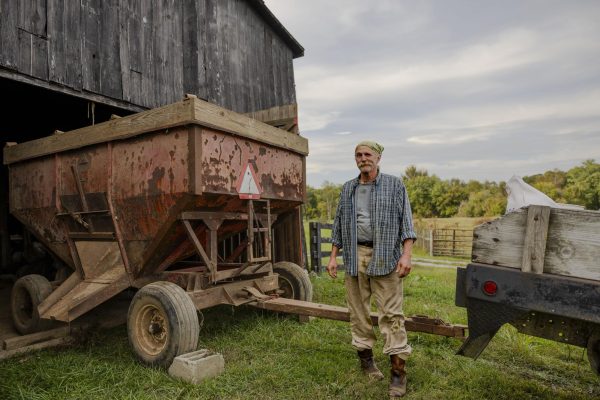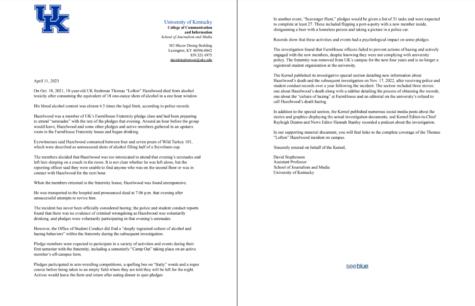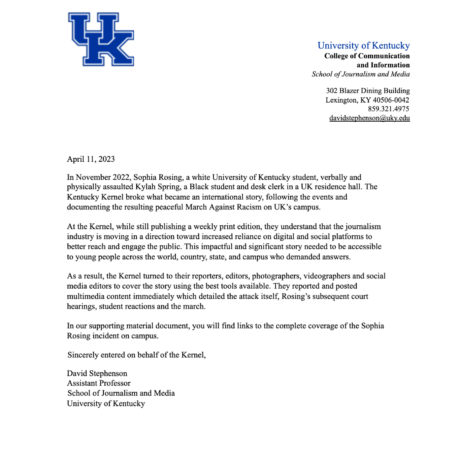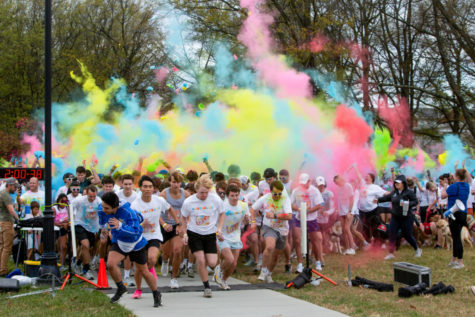Supreme Court block betrays public interest
Senator Rand Paul speaks to the media following his town hall meeting at the Hilton at Lexington Green on Saturday, February 20, 2016.
February 24, 2016
Sen. Mitch McConnell confirmed on Monday that expecting him to rise above partisan politics is a lost cause. The Senate’s majority leader said he would refuse to hold a hearing for a Supreme Court nomination from President Barack Obama.
McConnell and other Republican senators either do not understand the importance of a ninth Supreme Court justice or simply do not care.
Throughout history, U.S. senators have respected the importance of the ninth seat — even McConnell wrote in a 1970-71 law journal that politics should be put aside when approving Supreme Court nominations.
But the country is now in an unprecedented position. The Senate is constitutionally allowed to continue this blockade, but it has never outright refused to hold hearings for nominees before.
McConnell is at the head of this irresponsible campaign, which could dramatically impact Supreme Court cases going forward.
If Obama’s successor chooses the nominee, this could leave the court with just eight justices until March or April of 2017, which means the Supreme Court would have just eight justices for nearly an entire session — from the first Monday in October until late June or early July.
Kentucky’s other U.S. senator, Rand Paul, is also staying true to this partisan roadblock. Paul said he “can’t imagine” how he would vote for Obama’s nominee.
“This is (the) sort of politics in today’s day and age,” said Justin Wedeking, assistant professor of political science. “We’re in somewhat uncharted waters here.”
Wedeking said the Senate Judiciary Committee has historically allowed for a full vote on the Senate floor, even if they do not approve of a president’s nominee. Senators considered the ninth seat too important to leave vacant for so long.
Wedeking, who specializes in Supreme Court nomination hearings, said if Republican senators hold fast and refuse to hold a hearing, Obama will likely “go public,” calling on his constituents to cry out to their senators and demand a hearing. But whomever Obama nominates could determine whether Republicans change their minds. A liberal nominee would likely lead to the blockade continuing, but a moderate nominee could change some of their minds.
Refusing to hold a vote for a moderate nominee could hurt Republicans’ chances in upcoming elections, which could turn them against McConnell and others who want to refuse a hearing.
Sen. McConnell is abandoning the public interest in his partisan obstruction of this country’s democratic process. People who want to voice their criticisms can call his Washington, D.C., office at 202-224-2541.












































































































































